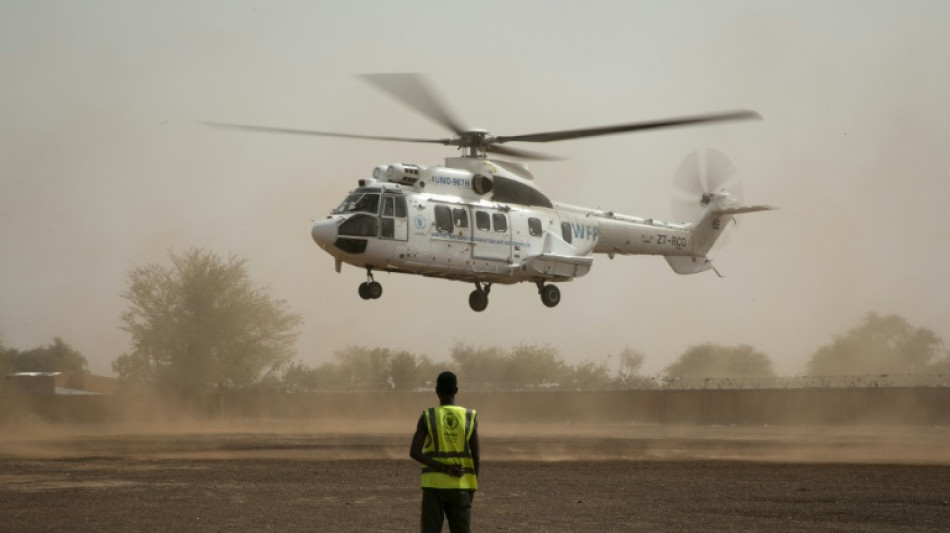
-
 Surging tourism is polluting Antarctica, scientists warn
Surging tourism is polluting Antarctica, scientists warn
-
Ten Hag hoping for fresh start at rebuilding Leverkusen

-
 Five players to watch at the Women's Rugby World Cup
Five players to watch at the Women's Rugby World Cup
-
Suarez fills Messi void as Inter Miami beat Tigres 2-1

-
 Asian markets creep up as investors await key speech
Asian markets creep up as investors await key speech
-
New Zealand spy service warns of China interference

-
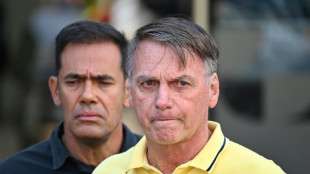 Brazil police accuse Bolsonaro and son of obstructing coup trial
Brazil police accuse Bolsonaro and son of obstructing coup trial
-
Israel approves major West Bank settlement project
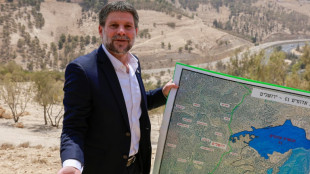
-
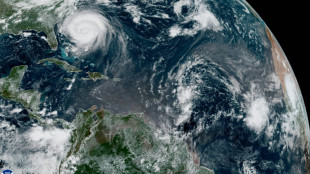 North Carolina braces for flooding from Hurricane Erin
North Carolina braces for flooding from Hurricane Erin
-
Pensioners on the frontline of Argentina's fiery politics
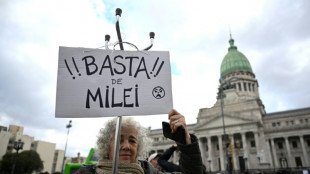
-
 'Curly is beautiful': Tunisian women embrace natural hair
'Curly is beautiful': Tunisian women embrace natural hair
-
Sudanese lay first bricks to rebuild war-torn Khartoum

-
 Newcastle host Liverpool amid Isak stand-off, Spurs test new-look Man City
Newcastle host Liverpool amid Isak stand-off, Spurs test new-look Man City
-
Texas Republicans advance map that reignited US redistricting wars

-
 South Africa spinner Subrayen cited for suspect action
South Africa spinner Subrayen cited for suspect action
-
Meme-lord Newsom riles Republicans with Trump-trolling posts

-
 Messi ruled out of Miami's Leagues Cup quarter-final v Tigres
Messi ruled out of Miami's Leagues Cup quarter-final v Tigres
-
Trump raises pressure on Fed with call for governor to resign
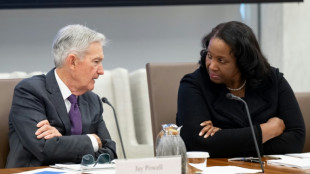
-
 Trump flirts with Ukraine security, with narrow margins
Trump flirts with Ukraine security, with narrow margins
-
US sends three warships near Venezuela coast

-
 Celtic held by Kairat Almaty in Champions League play-off
Celtic held by Kairat Almaty in Champions League play-off
-
North Carolina braces for flooding from 'Enormous' Erin
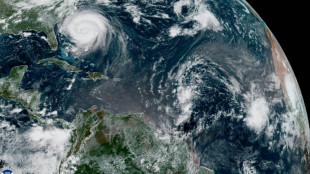
-
 Arsenal could hijack Spurs' bid for Palace star Eze - reports
Arsenal could hijack Spurs' bid for Palace star Eze - reports
-
Namibian Shalulile equals South African scoring record

-
 PlayStation prices rise as US tariffs bite
PlayStation prices rise as US tariffs bite
-
Games publisher kepler on cloud nine after smash hits

-
 Thirteen arrested over murders of Mexico City officials
Thirteen arrested over murders of Mexico City officials
-
Seville storms past Lyles for Lausanne 100m win

-
 India test-fires nuclear-capable ballistic missile
India test-fires nuclear-capable ballistic missile
-
Google unveils latest Pixel phones packed with AI

-
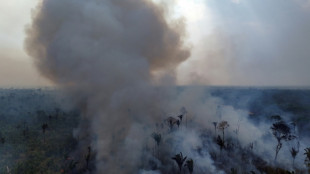 Brazil records 65 percent drop in Amazon area burned by fire
Brazil records 65 percent drop in Amazon area burned by fire
-
Threat from massive western Canada wildfire eases

-
 England women's rugby coach Mitchell says World Cup favourites' tag 'irrelevant'
England women's rugby coach Mitchell says World Cup favourites' tag 'irrelevant'
-
US ramps up attack on international court over Israel

-
 Palace transfer targets Eze and Guehi to start in European tie
Palace transfer targets Eze and Guehi to start in European tie
-
North Carolina coasts prepare for flooding as Erin churns offshore

-
 India test-fires ballistic missile ahead of US tariff hike
India test-fires ballistic missile ahead of US tariff hike
-
Antarctic climate shifts threaten 'catastrophic' impacts globally

-
 Tall ships sail into Amsterdam for giant maritime festival
Tall ships sail into Amsterdam for giant maritime festival
-
Trump raises pressure on central bank, calls for Fed governor to resign

-
 Woods to head PGA Tour committee to overhaul golf
Woods to head PGA Tour committee to overhaul golf
-
Google packs new Pixel phones with AI

-
 How Europe tried to speak Trump
How Europe tried to speak Trump
-
Stock markets diverge awaiting Fed signals as tech sell-off deepens

-
 Ombudsman gives Gosden another International, Derby hero Lambourn loses
Ombudsman gives Gosden another International, Derby hero Lambourn loses
-
Eurovision returns to Vienna, 11 years after Conchita Wurst triumph

-
 England expects at Women's Rugby World Cup as hosts name strong side for opener
England expects at Women's Rugby World Cup as hosts name strong side for opener
-
Marseille's Rabiot, Rowe up for sale after 'extremely violent' bust-up: club president

-
 Shearer accuses Isak of pouring 'flames on fire' of Newcastle row
Shearer accuses Isak of pouring 'flames on fire' of Newcastle row
-
French champagne harvest begins with 'promising' outlook


UN air service slashes fleet by nearly a quarter
The UN's air service which flies humanitarian workers and cargo to hard-to-reach corners of the world has been forced to slash its global fleet by almost a quarter due to funding cuts, the World Food Programme (WFP) told AFP.
WFP, which manages the United Nations Humanitarian Air Service (UNHAS), received 45 percent of its funding from the United States last year and is one of the organisations most affected by President Donald Trump's foreign aid cuts.
Since January UNHAS "has been forced to cut its global fleet by over 22 percent due to a lack of funding — that's 17 fewer aircraft," a WFP official told AFP on condition on anonymity.
More than 600 aid organisations, including Doctors Without Borders, use UNHAS in 21 countries to ferry humanitarian workers and vital supplies to the world's most challenging regions.
"Without UNHAS flights, MSF will be forced to charter planes to many areas, which is extremely costly and diverts resources away from actual patient care," said Claire Waterhouse, MSF Southern Africa's head of operational support unit.
"Bearing the cost is not sustainable for MSF and may halt humanitarian operations in some contexts."
- South Sudan, Afghanistan -
The United States -- the world's top donor -- slashed foreign aid after Trump took office this year, causing havoc in the humanitarian sector with several organisations forced to slash staff, scale back or restructure.
Other major donor countries have also reduced their contributions.
Cuts have already affected countries like South Sudan, which faces a growing humanitarian crisis with almost a million people who arrived last year fleeing conflict in neighbouring Sudan.
"Weekly flight schedules were adjusted this year to remove five destinations from the 48 that were serviced in 2024. The flight frequency to 10 other destinations was also scaled down," the WFP representative said.
In Afghanistan, where one in every five people is hungry according to the UN, seats available with UNHAS dropped from 157 to 57 since the beginning of the year, the official added.
"This has not only reduced the capacity of aid workers to reach those most in need but also the capacity of UNHAS to react quickly to sudden changes in operational context such as security relocations or a surge in humanitarian needs."
- Human 'triage' -
Even after reducing air services, there is still a risk that more humanitarian operations could be grounded.
"Despite aggressive cost-saving measures, including reductions in the number and frequency of flights, UNHAS faces a $53 million funding shortfall through December," the WFP official said.
The data provided to AFP by the international organisation was what was available at the end of May, meaning the numbers could change if new sources of funding are found.
The Trump administration gutted the US Agency for International Development (USAID) shortly after taking office, eliminating 83 percent of its aid programmes.
The organisation was supporting 42 percent of all aid distributed globally.
In the wake of "the deepest funding cuts ever to hit the international humanitarian sector," the UN launched an appeal in June to prioritise aid for 114 million people "facing life-threatening needs across the world."
"We have been forced into a triage of human survival," said Under-Secretary-General for Humanitarian Affairs and Emergency Relief Coordinator Tom Fletcher.
"The math is cruel, and the consequences are heartbreaking. Too many people will not get the support they need, but we will save as many lives as we can with the resources we are given."
F.AbuShamala--SF-PST
